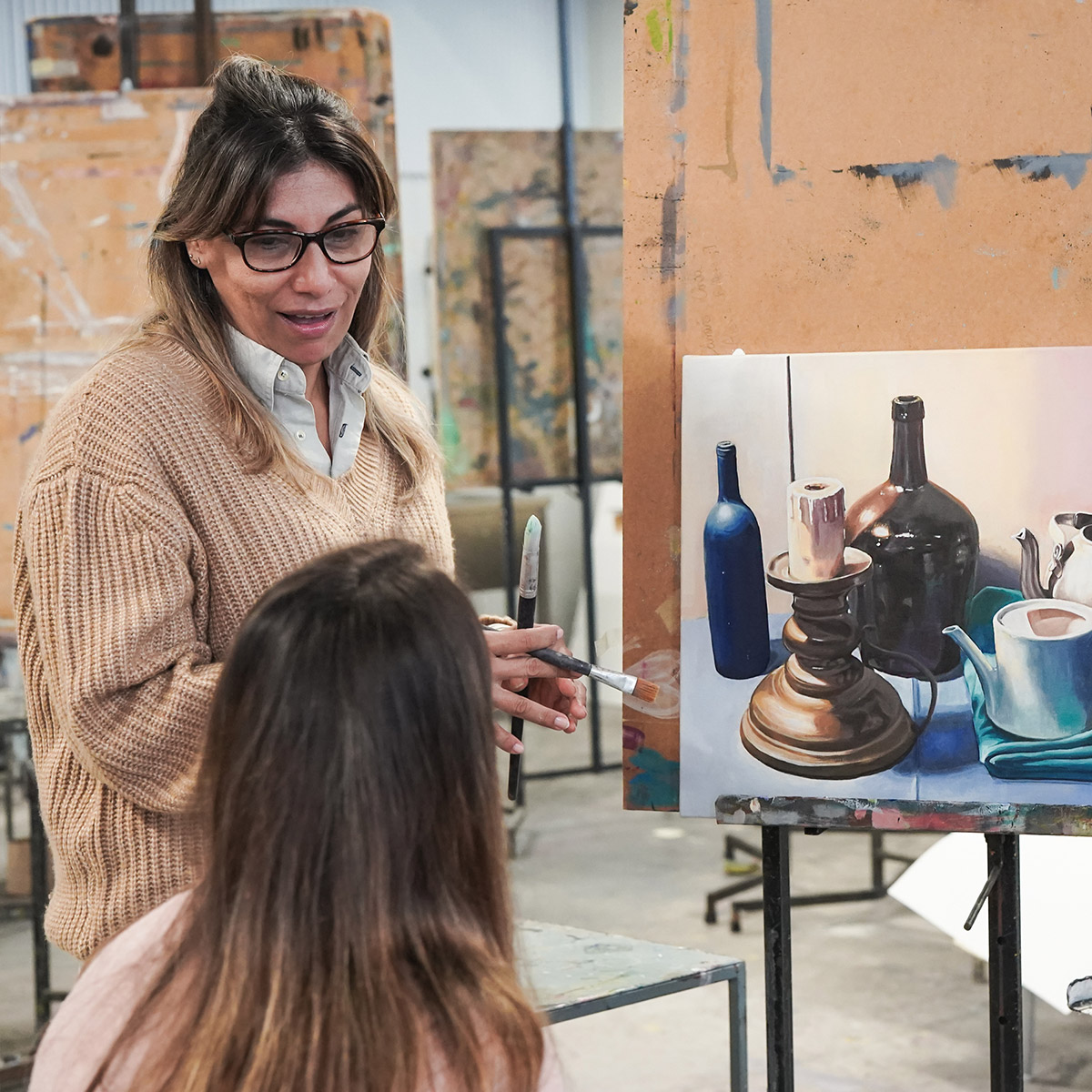Art Education
The Associate of Arts in Art Education is designed to seamlessly transfer to Metropolitan State University Denver's Bachelor of Arts in Art Education program. Through this degree, students will develop foundational skills in visual art, art history, and educational theory, preparing them to inspire and educate future generations. The coursework includes inter-institutional opportunities where students can take Metro State courses at CCD prices, ensuring a smooth and affordable transition. This program allows students to build a strong portfolio while learning how to effectively teach and engage diverse learners in the arts.

Academic support is provided through CCD’s Excel Zone, which helps students succeed by offering a variety of learning opportunities. We are located on campus on the 4th floor of the Confluence building.
CCD Online offers fully online certificates and degrees, and individual online courses to help match your busy schedule.
Your first step is to see if online learning is right for you. Online and hybrid environments offer much more flexibility but require more self-direction and self-discipline. Certain work habits, learning styles and skills contribute to a successful online or hybrid learning experience.
Online Experience Questions?
303.352.6785 | TLC@ccd.edu
Some programs and/or courses may require additional fees in addition to the base tuition and fees. High-cost course fees are used to support the maintenance and development of the course labs and are embedded within your general tuition.
The following courses have additional fees:
ART 1111, ART 1002, ART 1201, ART 1112, ART 1003, ART 1004, MGD 1041, ART 1113, MGD 1015
View the 2024-2025 Course Specific Fees
This program is eligible for federal financial aid.
Your first step is to connect with the Financial Aid office to discover how you can afford college. Our dedicated staff and support services help you wade through all the legal language and get you past the first hurdle to completing your educational goals.
In addition, CCD has $1,000,000 available in scholarships. Learn More!
The Associate of Arts in art education transfer agreement with Metropolitan State University of Denver is designed to prepare you for seamless transfer into Metropolitan State University of Denver’s Bachelor of Arts in art education.
Students in this degree will have an early field experience in the classroom in EDS 3140, an inter-institutional course taken at MSUD at CCD prices.
What Can I Do with My Major?
There are numerous job possibilities with a degree in art education.
- K-12 Art Teacher – Traditional teaching roles in elementary, middle, or high schools.
- Art Program Coordinator – Developing and overseeing art programs for schools, districts, or community organizations.
- Curriculum Developer – Creating K-12 art curriculum materials and resources, often for school districts or educational publishers.
- After-School Program Instructor – Teaching art in after-school programs run by community centers, non-profits, or private organizations.
- Art Camp Director/Instructor – Leading art camps during school breaks or summer for various age groups.
- Arts Integration Specialist – Working with schools to incorporate arts into other subject areas, such as STEM (STEAM initiatives).
- Art Supply Company Representative – Demonstrating art products in schools and supporting educators with material selection.
- Freelance Art Educator – Teaching art classes or workshops independently, often through online platforms or local studios.
- Education Outreach Coordinator – Running art outreach programs for museums, galleries, or community organizations.
- Art Gallery Educator – Hosting workshops or educational tours in galleries to engage visitors with exhibits.
- Youth Arts Program Administrator – Overseeing art programs within youth centers or community development organizations.
- Private Art Tutor – Offering one-on-one art lessons to students outside of traditional school settings.
How Much Can I Expect to Earn?
The median annual wage for high school teachers was $65,220 in May 2023.
The information provided here is by the U.S. Bureau of Labor Statistics, Occupational Outlook Handbook.
